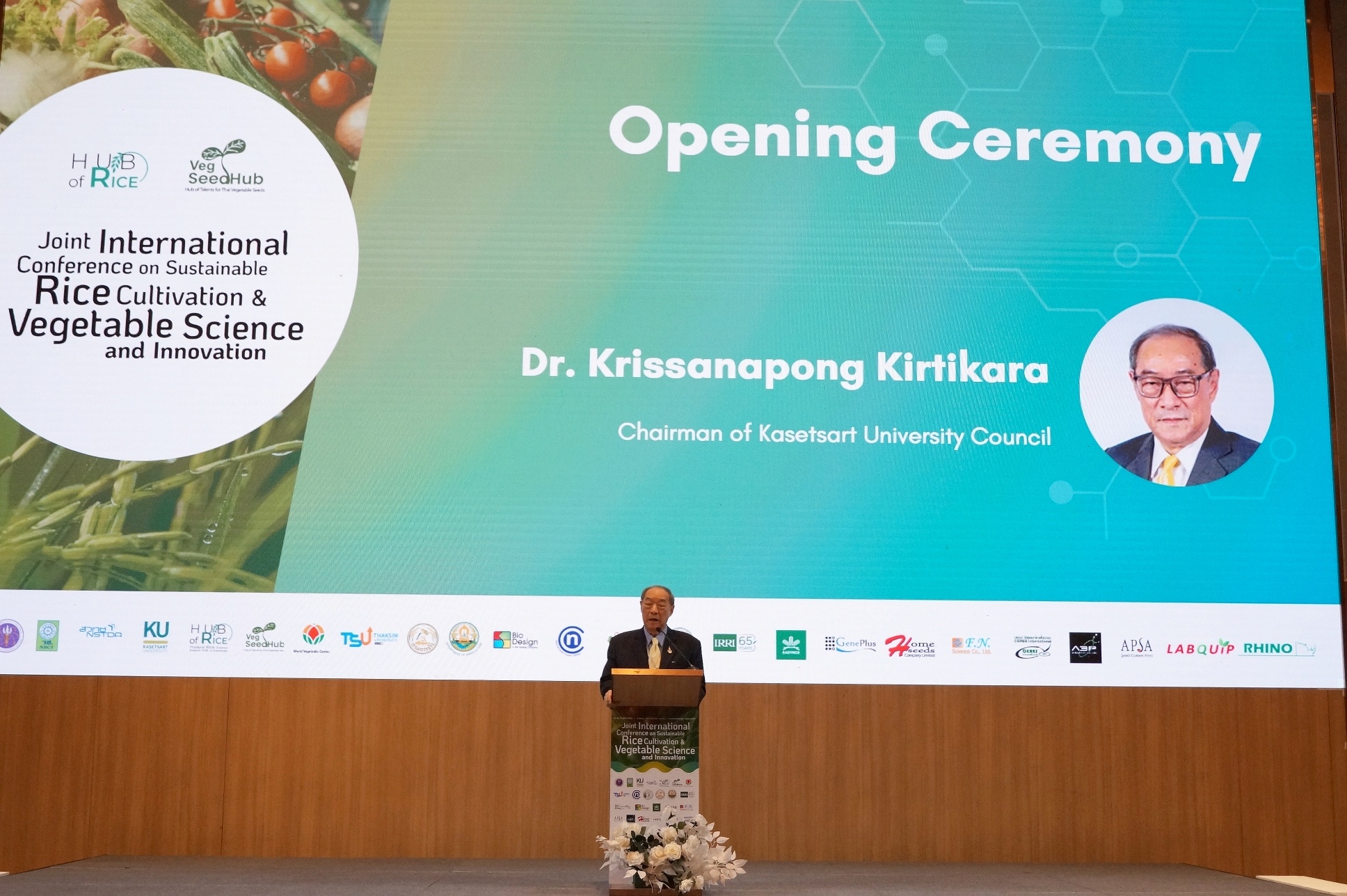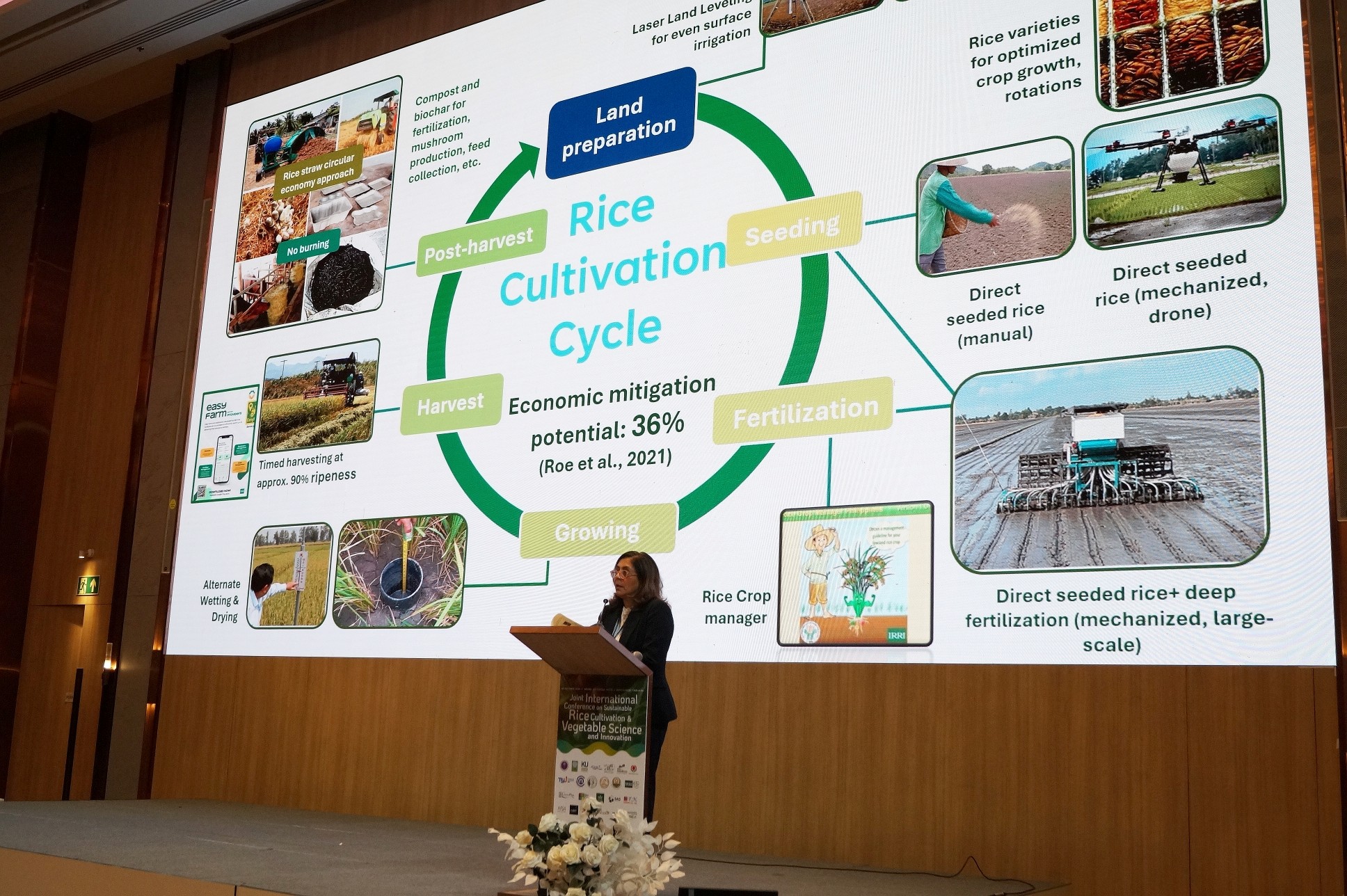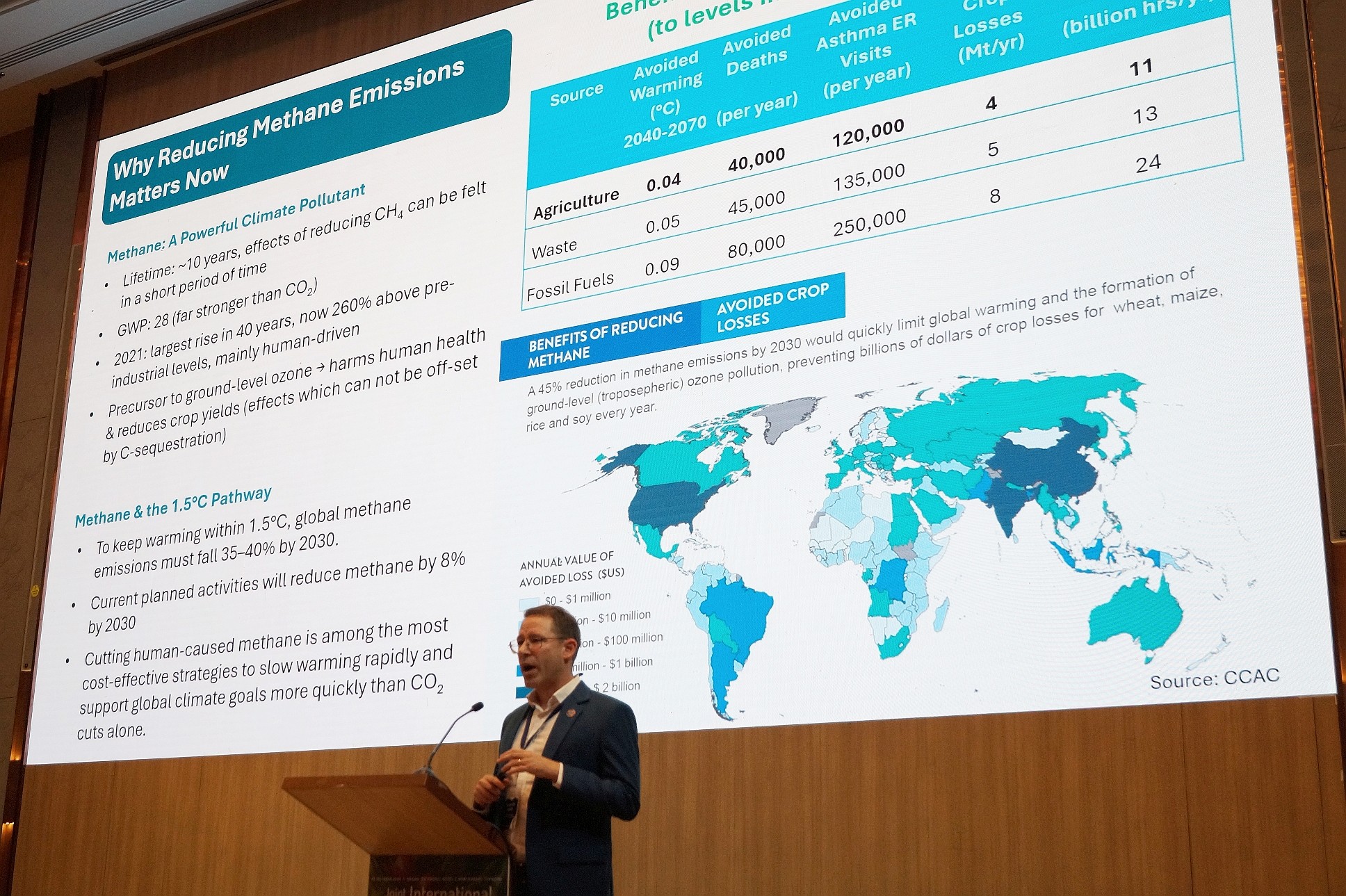Joint International Conference Showcases Innovations in Sustainable Rice and Vegetable Research

24 October 2025, Nonthaburi, Thailand — National and international scientists, policymakers, development partners, private sector representatives, and students gathered in Nonthaburi for the Joint International Conference on Sustainable Rice Cultivation and Vegetable Science & Innovation, an event dedicated to advancing sustainable agriculture and food security.
Co-organized by the Thailand Rice Science Research Hub of Knowledge (Hub of Rice) and the Hub of Talents for Thai Vegetable Seeds (Veg-SeedHub), funded by the National Research Council of Thailand (NRCT), and with support from the International Rice Research Institute (IRRI), the conference created a lively platform for scientific exchange and cross-crop collaboration.
Rice and vegetables are central to global food systems, especially across Asia, where they underpin both livelihoods and nutrition. As the region faces mounting challenges from climate change, resource scarcity, and population growth, the conference provided a space to share innovations that make food production more sustainable, resilient, and equitable. The participants each contributed insights into emerging technologies and strategies to strengthen sustainable rice and vegetable production.
The opening ceremony was presided over by Dr. Yvonne Pinto, Director General of IRRI; Dr. Krissanapong Kirtikara, Chairman of the Kasetsart University Council; and Prof. Dr. Konsorn Srikulnath, Assistant to the President for Research and Internationalization of Kasetsart University.

In her keynote address, Dr. Pinto emphasized that today’s agricultural research must deliver both environmental and economic impact. She highlighted that the world faces rising food prices driven by conflicts, climate extremes, and soaring fertilizer costs. Improving the nutritional quality of food, including biofortification in food-insecure regions, is essential. She further emphasized that climate-resilient, high-yielding crops that use fewer resources are key to future food security. Sustainable food systems must protect the environment while ensuring farmer incomes and stable employment. To do so, effective food policies must be not only well-designed but accessible, utilized, and reliable. Collective efforts must focus on developing climate-resilient, low-emission rice systems for a healthier planet with bottom profitability for farmers.

Dr. Pinto underscored IRRI’s commitment to science-driven, farmer-centered innovation, presenting several technologies that support low-emission rice management across cultivation and post-harvest stages, improving productivity and profitability for farmers.
Dr. Bjoern Ole Sander, Senior Scientist and Thailand Country Representative of IRRI, presented advances in monitoring and quantifying greenhouse gas emissions in rice. He explained that methane reduction is vital because methane contributes to ground-level ozone, which lowers crop yields and harms human health, as in causing respiratory diseases. He emphasized that to identify areas in need of emission reduction practices, more accurate monitoring and reporting practices need to be established.

Emission estimates depend on scaling factors influenced by how rice fields are managed. Such data, however, are often lacking. To improve this, IRRI developed the FarMoRe and RiceMoRe tools with Viet Nam’s government to collect key field data with minimal extra input, linking them with IRRI’s SECTOR greenhouse gas calculator for more precise estimates.
Using these data, emissions can be visualized through geospatial maps and enhanced by satellite radar imagery and water sensors that track irrigation and flooding. Together, these methods reveal how water management affects methane emissions. In essence, more water leads to more anaerobic conditions and higher methane output.
By bridging the research communities of agriculture science, this joint conference highlighted not only that collaboration accelerates innovation across crops, institutions, and borders but also reinforced Thailand’s growing role as a hub for agricultural research supporting regional and global efforts to build food systems that are productive, sustainable, and resilient.